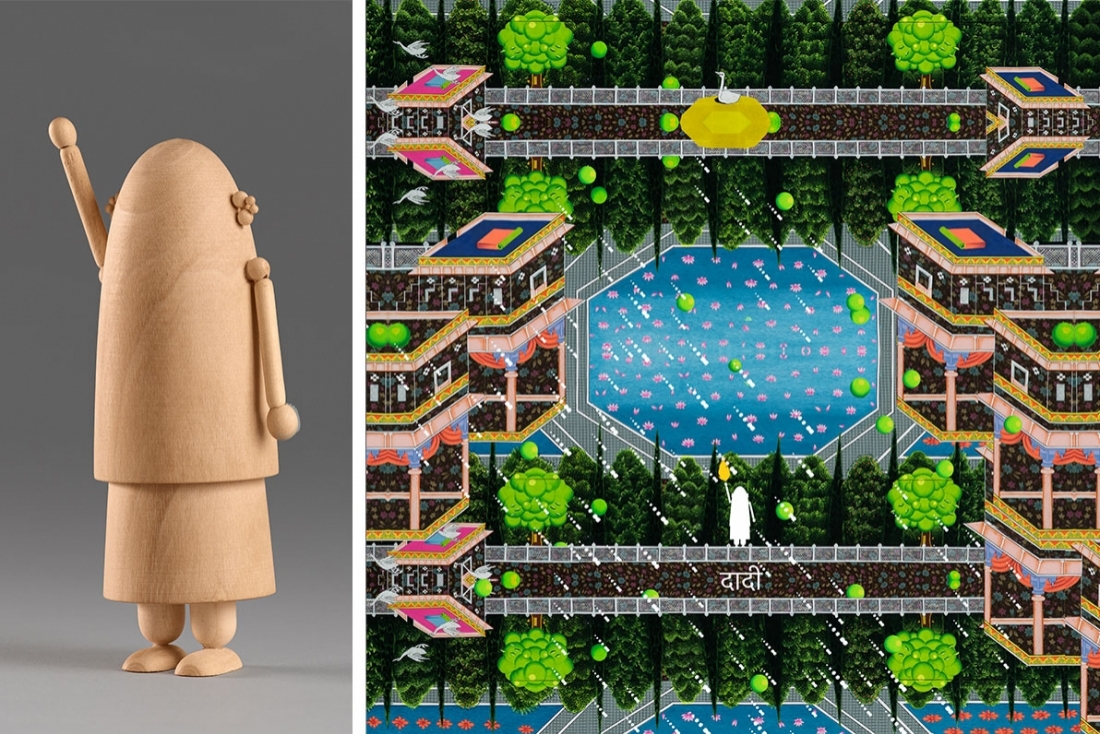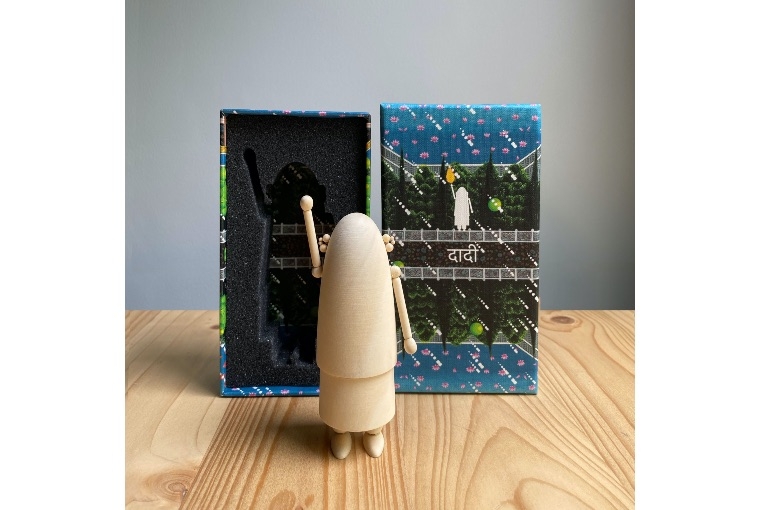

The thought and enigma behind Princess Pea has gone beyond its alter ego, as the artist beautifully crafts art that emphasises the importance of a voice. Over the years, many thought-provoking series have been created by Princess Pea and the most recent is Daadi. The artist deconstructs ‘Granny Power’.
Can you tell us how Daadi was conceived?
It has been five years since I began photographing, documenting, and telling the stories of Indian women of different ages, abilities, regions, and backgrounds. Looking back, I am proud to have gathered, carried, and shared a sea full of lessons, learnings, recipes, and rituals, that make our women, culture, and society. It has been a rugged, rough, and emotional journey, but equally filled with pleasure, wisdom, and wild laughter.
Of all my interactions, my favourite has been the ones with the figure of Daadi, our dear grandmother. No matter how, where, and what, she is strong, compassionate, and defiant, and it is under her council that we must decide the fate of the Earth — medicines that can save it and lead us towards a better future. Whether in art, literature, or society, older women are perceived to be innocent, weak, or incompetent. With Daadi, I wanted to offer a different picture. These women are in fact so capable, and able to confront men with calm authority.
I believe in Granny Power. Do you?
What does Daadi stand for and is trying to communicate?
In a patriarchal society, a woman’s identity is defined by what the men think of her — she must exist to serve them and their needs. As long as she is fulfilling her duty of care within the bounds of her home, it is acceptable. Yet, the moment she steps out to fulfill her duty and fight for a better future for her children and grandchildren, she is questioned, belittled, and in many instances, vilified.
Just before we went into lockdown in 2020, Delhi — my home city —was also a site for one of the largest sit-in protests in history. As with many of us, I was completely taken by the figure of Bilkis Daadi of Shaheen Bagh and countless other women and grandmothers, who came out and stood strong amidst the chaos. To be honest, they were our last respite and it was incredible to see and study their radical call for change.
Can you deconstruct the craft behind the wooden sculpture?
I have always believed in the power, wisdom, and knowledge possessed by our craftspeople; they are most of what makes The Pea Family. I have been working with traditional wooden toymakers — many of whom are women — from Etikopakka in Andhra Pradesh for over a decade now. Whether it is Daadi (2020), Soul Sisters (2017) or Fall and Rise (2016), each work is a product of collaboration as well as an attempt to bridge the gap that exists between the ideas of urban and rural, art and craft, ancient and contemporary.
As an artist, where does your truth lie?
At its core, my practice is centred around studying a woman’s role in society. My choice to remain anonymous is my own. It allows me to voice the untold stories of women in ways I would not have been able to otherwise. It is also a way to question and face up to (pun not intended!) the complexities, given that women have been pushed into anonymity and oppressed by systems of power, today and throughout history.

How has the current pandemic affected your artistry and what have you learned from the past year?
It has made us rethink some of our fundamental beliefs and most of all, realise the importance of community. Being an anonymous artist and curious listener has allowed me to open and engage in dialogue with people from all walks of life, both online and offline. The pandemic has been harsh on everyone, but especially on children and the elderly. I cannot help but think of a generation of people that we have lost, as well as the shocks it has had on our children and the youth. Coming to terms with so much grief, inequality and pain has never been easy. But if anything, it has strengthened my resolve to carry on and continue championing their stories.
In a sense, my miniature sculptures — which can be placed on a study desk, bedside table or in the kitchen — are meant to be conversation starters. I hope wherever they go, they inspire, empower and encourage some amount of introspection in the minds of their keepers.
Lastly, what role does your Daadi play in your life?
To me, she is wild, womanly, and complex — a symbol of resilience, a life coach, and a book of memories. My next toy series — Every Day is a Protest — is a set of six Daadis, and celebrates the power of grandmothers’ movements, in India and world-over.
Text Shruti Kapur Malhotra
Date 16-06-2021